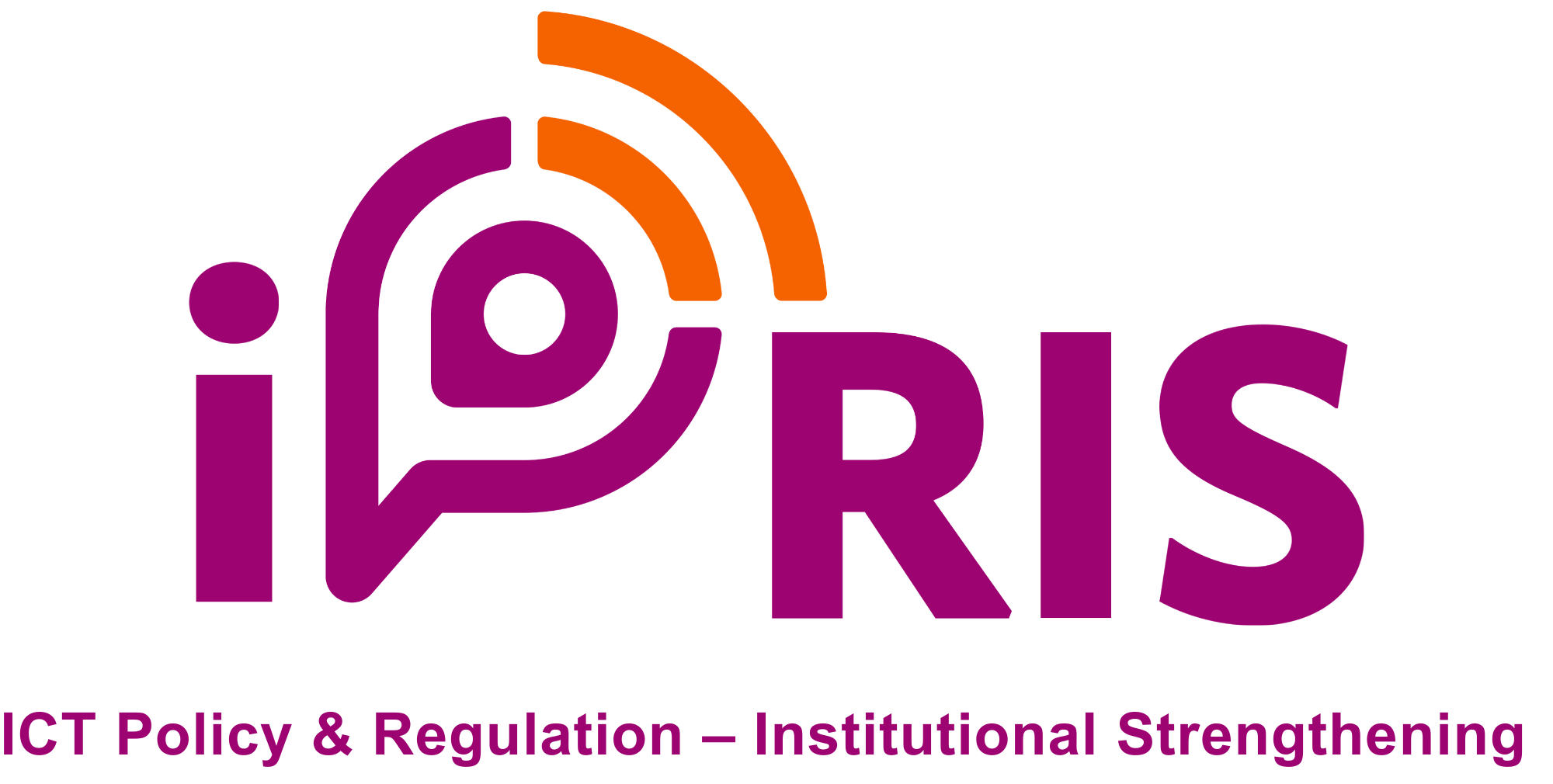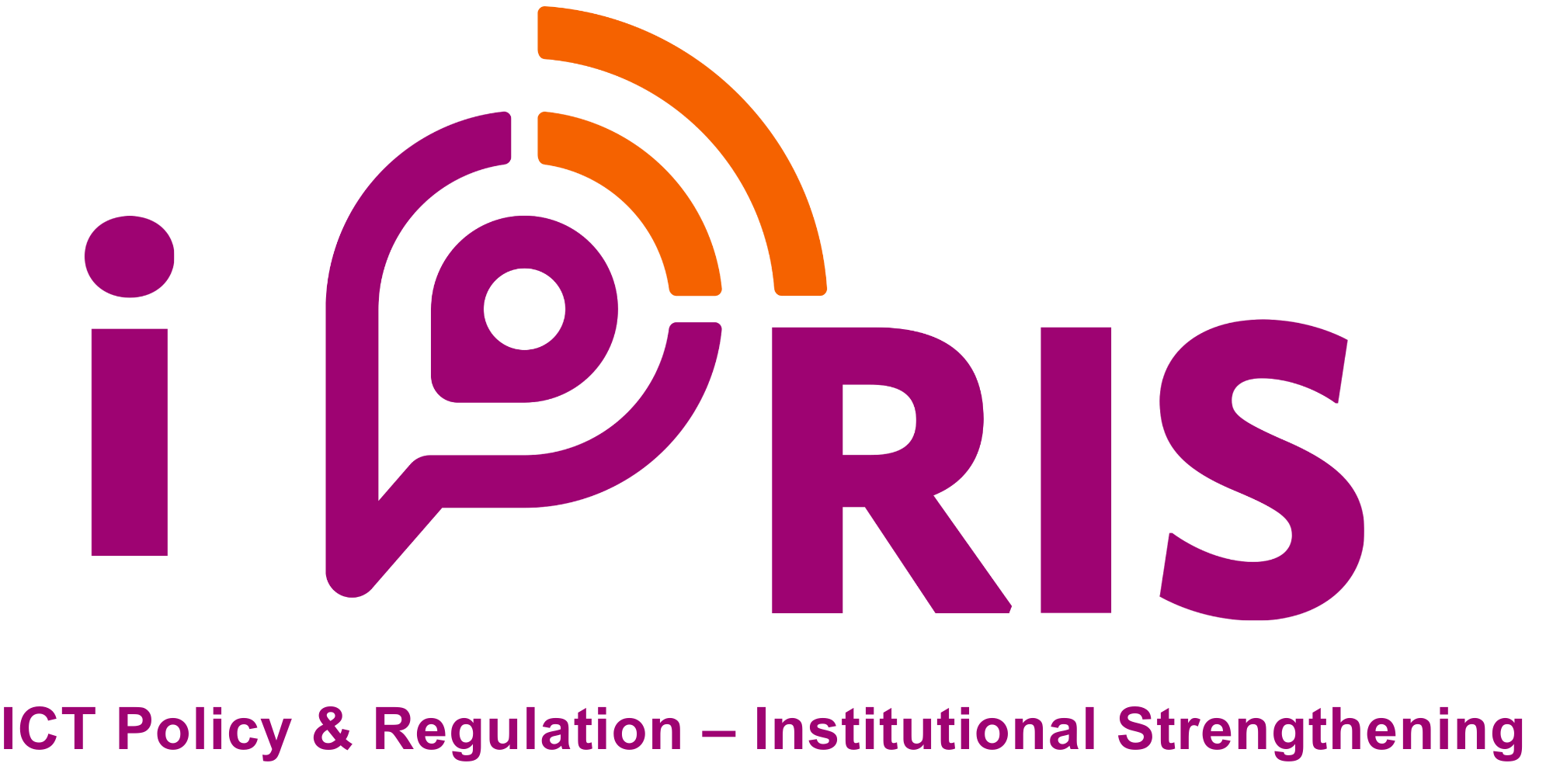By Prof. Caroline Wamala Larsson
Imagine a farmer in rural Uganda who cannot make a mobile payment to their local agrovet because the village has no reliable coverage. Or a college student in Zimbabwe locked out of online classes because data costs consume too much of her family’s income. These are not isolated stories; they are daily realities for millions of Africans.
Connectivity is the backbone of economic growth, social inclusion, and civic participation. Yet nearly three-quarters of Africans remain offline or under-connected. Telecom regulators shape the environment where digital innovation can thrive. By setting fair rules and fostering competition, they create the conditions for affordable, reliable access that benefits all. They are key enablers of a vibrant digital ecosystem.
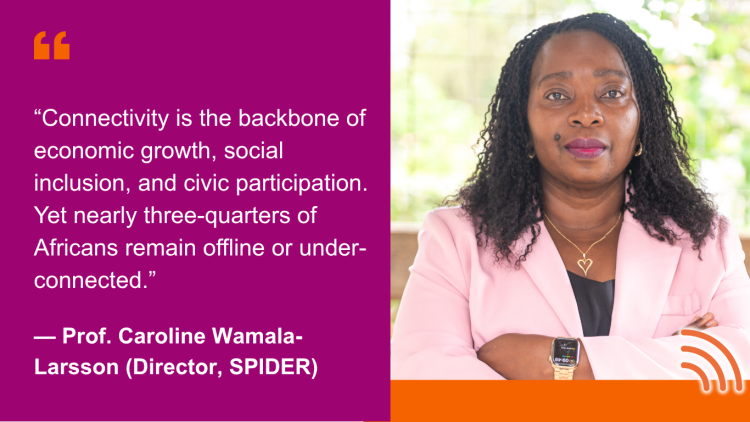
iPRIS: A platform for shared solutions
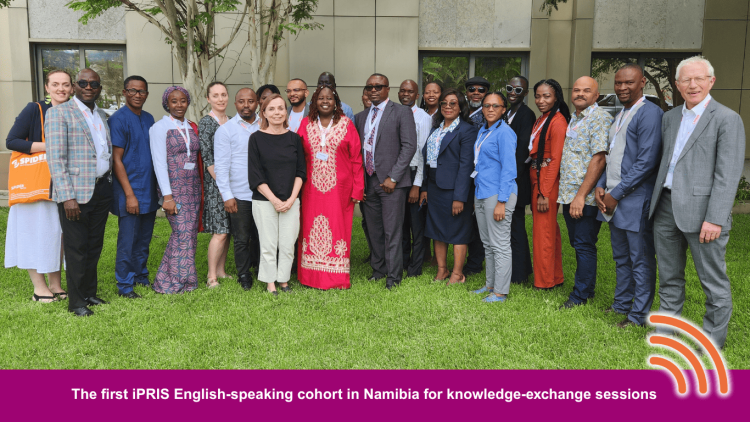
One initiative making this support tangible is the ICT Policy & Regulation – Institutional Strengthening (iPRIS) programme, coordinated by SPIDER in partnership with the Swedish Post and Telecom Authority (PTS) and the Luxembourg Regulatory Institute (ILR). iPRIS offers regulators a year-long cycle of technical training, project management coaching, and peer-to-peer exchanges across Africa and Europe. iPRIS is funded by the European Union, Sweden, and Luxembourg as part of the Team Europe Initiative “D4D for Digital Economy and Society in Sub-Saharan Africa”
Since its launch in November 2023, iPRIS has engaged regulators from more than 30 countries, alongside regional bodies: ARTAC, CRASA, WATRA, EACO. Each cohort develops practical projects aligned with national priorities, which often evolve into regulatory reforms.
Progress within the region
The impact is already visible. In Tanzania, regulators pioneered Direct-to-Mobile Satellite Guidelines, extending connectivity to remote areas. In Mozambique, a Change Initiative grew into a national roaming regulation that allows rural families to remain connected even when one network fails. In Mauritius, regulators are safeguarding the digital ecosystem with new Cybersecurity Guidelines, strengthening trust in online platforms and preparing for a 5G-driven future. Uganda has stepped onto the global stage by hosting the ITU Global Symposium for Regulators (GSR 2024), bringing 900 delegates to Kampala and demonstrating Sub-Saharan Africa’s leadership in digital governance.
These milestones are the result of collaborative efforts across governments, regulators, development partners, and regional bodies. iPRIS is proud to have contributed as part of this wider community driving digital transformation.
Implementation of the ECOWAS Regional Free Roaming Regulation
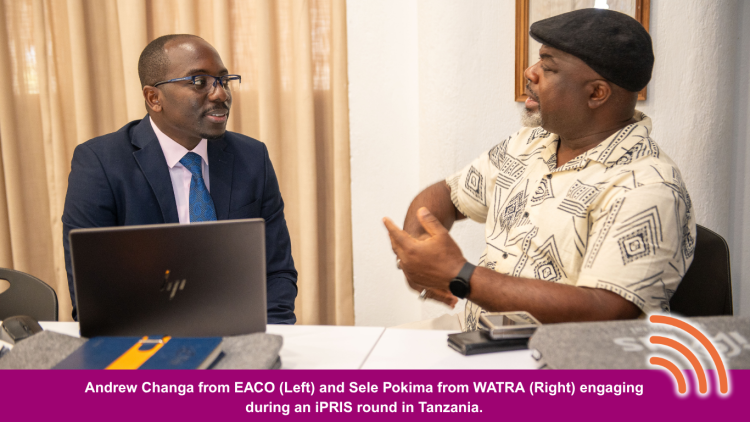
At WATRA, a number of initiatives are ongoing, most of which have yielded results towards providing meaningful connectivity in the sub-region, and some of these initiatives include;
- Supporting the Implementation of the ECOWAS Regional Free Roaming Regulation which so far has provided affordable communication during migration within and across 9 West African nations with more progress to be made with the expected support from Workstream 2 of the iPRIS program;
- The advent of Non-Geostationary Orbit (NGSO) operations led to the development of an NGSO Framework at the regional (WATRA) level which provides a guide to Regulators on how to successfully engage the NGSO operators and leverage on their services to promote increased coverage and connectivity, especially in the underserved and unserved areas within the region.
WATRA is also proud to play an active role in the achievement of the Digital Transformation Strategy (DTS) 2020 – 2030 for Africa towards ensuring meaningful connectivity across all levels in the continent from the first to the last mile. Through the iPRIS project as well, various initiatives have been developed to promote connectivity across the sub-region, tackling critical areas of the telecommunications sector, ranging from Spectrum Management to 5G deployment. With other key collaborations with the ITU, Smart Africa, and other development partners, WATRA is making strides towards ensuring meaningful connectivity across West Africa and Africa at large.
Why inclusivity matters
For the regional regulatory organisations, inclusivity is not a slogan but a strategic goal. The 2023–2028 EACO strategic plan places bridging the digital divide at its core, bringing both urban and rural populations, women and men, into the digital economy. According to Nora Sitati, Liaison Manager at the East African Communications Organisation (EACO): “Diversity enriches innovation—men and women approach challenges differently, and when those perspectives converge, the solutions are stronger and more practical.”
Inclusivity, in this context, means ensuring that communities are not passive recipients of connectivity but active participants in shaping it.
This perspective underscores a crucial reality: data must guide action. Disaggregated statistics on gender, disability, or rural populations highlight who is excluded and why. Without such evidence, interventions risk being generic and ineffective. With data, telecom regulators, can tailor policies to expand access where it is most needed.
Inclusivity is also an economic imperative. Excluding women, youth, or rural communities not only perpetuates inequality, it denies economies the contributions of millions of potential digital consumers, workers, and innovators. In other words, empowering marginalised groups is both socially just and economically smart.
Barriers and solutions
The obstacles to digital inclusion are deeply embedded in social structures—gender roles, class, age, and geography all shape access to resources and opportunities. Regulators cannot dismantle these barriers alone. Multi-stakeholder collaboration is essential, involving governments, telecom operators, academia, and civil society.
Awareness programmes and workshops are one way to bring multiple actors together. EACO, for example, has long demonstrated the value of including students and informal sector actors in its convenings. These efforts widen participation and help build solutions that reflect the needs of diverse communities.
Representation at the decision-making table is equally important. Solutions are more likely to succeed when the groups most affected—youth, women, persons with disabilities—are directly involved in shaping them. Exclusion at this stage only reinforces the very inequalities digitalisation seeks to overcome. Diversity is not just a matter of fairness; it is a driver of innovation. Different demographic groups bring unique perspectives to problem-solving. When rural and urban voices, men and women, young and old are all represented, regulatory frameworks and digital solutions become more practical, creative, and impactful.
A digital future that is equitable
The African Union’s Digital Transformation Strategy (2020–2030) recognises that Africa’s youth—nearly 60% of the population—are its greatest asset. Unlocking this demographic dividend requires lowering broadband costs, adopting gender-responsive policies, harmonising roaming regulations, and forging strong public–private partnerships to accelerate infrastructure rollout.
iPRIS is advancing this agenda by giving regulators the technical tools, data, and networks to deliver reforms that matter. Inclusivity, when embedded in regulation, ensures that Africa’s digital future is equitable as well as innovative.
As Doreen Bogdan-Martin, Secretary-General of the International Telecommunication Union (ITU), reminded delegates at the Global Symposium for Regulators (GSR 2025) “Digital technologies – from AI to quantum – are advancing faster than any regulation can. The real race must not be to build the biggest or fastest systems, but to make these technologies work for everyone – especially while 2.6 billion people remain offline.”
The roadmap to 2030
Inclusive digital development is not simply about connecting people to the internet; it is about transforming lives, expanding opportunities, and empowering communities. By supporting regulators through programmes like iPRIS, and by embedding inclusivity into policy design, Africa can ensure that its digital revolution benefits all—especially those historically left behind.
As the continent moves toward 2030, regulators have an opportunity to align connectivity with broader goals of gender equality, social justice, and economic growth. This entails making deliberate efforts to close the digital gender gap, promoting affordable access for low-income households, and creating spaces where women, youth, and persons with disabilities can participate in shaping solutions.
If every regulatory framework places inclusivity at its core, Africa’s digital transformation will not only expand networks but also unlock the full potential of its people. The future is digital—and with inclusive regulation, it can also be equitable.
iPRIS is coordinated and implemented by SPIDER in strategic and technical partnership with the Swedish Post and Telecom Authority (PTS) and Institut luxembourgeois de régulation (ILR), as well as ARTAC, CRASA, EACO, and WATRA.
iPRIS is funded by the European Union, Sweden, and Luxembourg as part of the Team Europe Initiative “D4D for Digital Economy and Society in Sub-Saharan Africa” (Code: 001).
